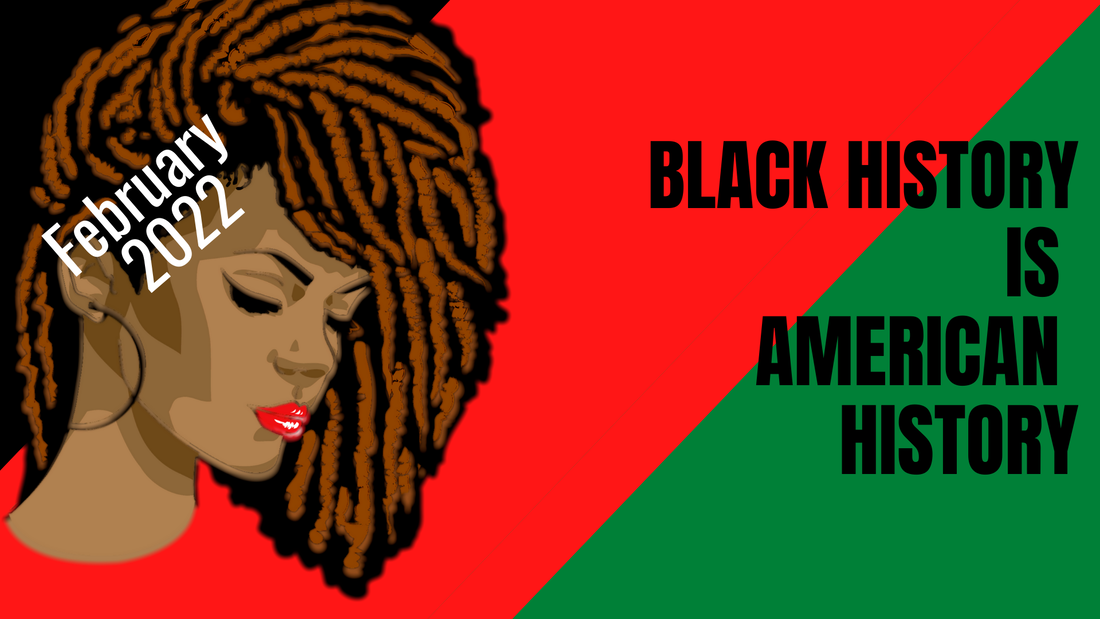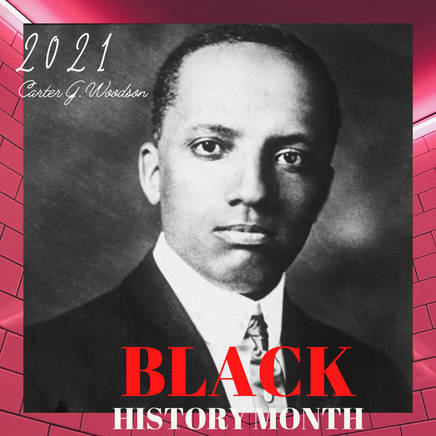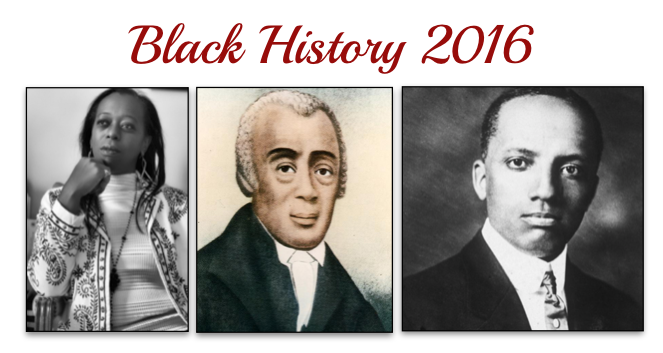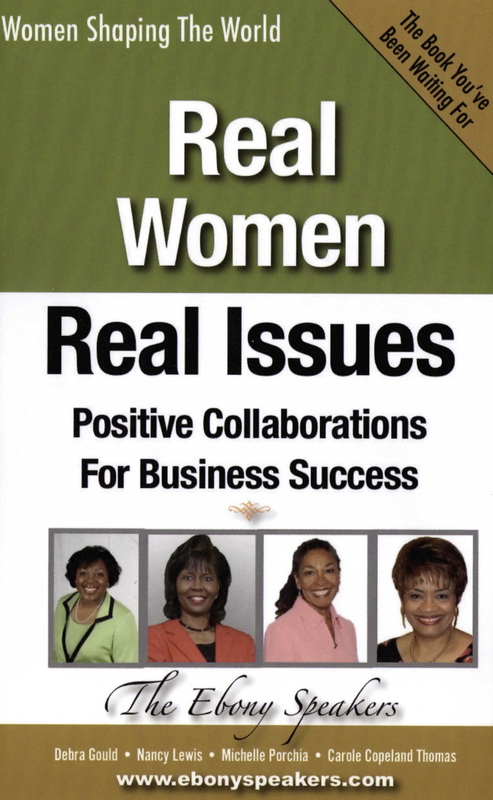|
The shortest month of the year should not limit the expansive contributions of Black people throughout the United States and the Americas. We salute African Americans' sacrifices, dreams, hopes, and opportunities, from Phyllis Wheatley to Dr. Ralph David Abernathy to Rev. Karla Cooper, who represent the best of our race.
Black History IS American History, and it should matter to ALL people throughout the land. -Carole Copeland Thomas =================== Black History Month and Dr. Carter G.Woodson During the dawning decades of the twentieth century, it was commonly presumed that black people had little history besides the subjugation of slavery. Today, it is clear that blacks have significantly impacted the development of the social, political, and economic structures of the United States and the world. Credit for the evolving awareness of the true place of blacks in history can, in large part, be bestowed on one man, Carter G. Woodson. And, his brainchild the Association for the Study of African American Life and History, Inc. is continuing Woodson's tradition of disseminating information about black life, history and culture to the global community. Known as the "Father of Black History," Woodson (1875-1950) was the son of former slaves and understood how important gaining a proper education is when striving to secure and make the most out of one's divine right of freedom. Although he did not begin his formal education until he was 20 years old, his dedication to study enabled him to earn a high school diploma in West Virginia and bachelor's and master's degrees from the University of Chicago in just a few years. In 1912, Woodson became the second African American to earn a Ph.D. at Harvard University. Recognizing the dearth of information on the accomplishments of blacks in 1915, Dr. Woodson founded the Association for the Study of Negro Life and History, now called the Association for the Study of African American Life and History (ASALH). Under Woodson's pioneering leadership, the Association created research and publication outlets for black scholars with the establishment of the Journal of Negro History (1916) and the Negro History Bulletin (1937), which garners a popular public appeal. In 1926, Dr. Woodson initiated the celebration of Negro History Week, which corresponded with the birthdays of Frederick Douglass and Abraham Lincoln. In 1976, this celebration was expanded to include the entire month of February, and today Black History Month garners support throughout the country as people of all ethnic and social backgrounds discuss the black experience. ASALH views the promotion of Black History Month as one of the most important components of advancing Dr. Woodson's legacy. In honor of all the work that Dr. Carter G. Woodson has done to promote the study of African American History, an ornament of Woodson hangs on the White House's Christmas tree each year. Source: Association for the Study of African American Life and History (ASALH) By Korey Bowers Brown http://asalh.net
0 Comments
Black History has always been American History, and now more than ever, its value and critical importance are on full display throughout the nation. The genius of Dr. Carter G. Woodson, who founded Black History month nearly 100 years ago, has caused generations of advocates to pay homage throughout the month of February to historical and current black men and women for their trailblazing sacrifices throughout the ages. BLACK HISTORY MONTH AROUND THE WORLD Each year Black History Month is also celebrated in England during the month of October, a tradition that started in 1987. Canada started celebrating Black History Month each February in 1995. Historical abolitionist activities in the Republic of Ireland contributed to Black History Month becoming official in October 2014. And the Netherlands acknowledged Black Achievement Month starting in October 2016. All thanks to ONE man's dream of giving dignity and honor to a race of people whose bloodlines spanned two continents. BRAVERY THROUGH THE AGES: REV WILLIAM GAINES I draw strength when I reflect on the stories and countless acts of bravery and courage from African Americans of the past. Some of them are my ancestors, like Rev. William Gaines, who in Savannah, Georgia in January 1865 sat with other black leaders in conversation with General William Tecumseh Sherman to figure out what to do with so many newly freed slaves. My relative is listed as the SIXTH member of this meeting. Here is the link to read more: http://www.freedmen.umd.edu/savmtg.htm. ELLEN AND WILLIAM CRAFT Speaking of courageous black people from Georgia, I can never get enough of Ellen and William Craft. Their daring escape from slavery in 1848 took them from their Macon, Georgia plantation through Philadelphia and Boston up into Canada and ultimately England, where the bounty hunters were guaranteed not to track them down. Ellen was a fair-skinned biracial woman dressed up as an injured man, with William acting as her servant. They pulled off one of the greatest escapes in American history and lived to tell the story. STACEY ABRAMS Georgia giants continued making history when black women, including Stacey Abrams, decided to use their community and church-organizing skills to get people out to the polls, not once but twice. First to flip Georgia from red to blue by choosing Joe Biden/Kamala Harris for President/Vice President in November 2020. Then, flipping Georgia blue again with the historic election of a Black Baptist minister and a Jewish journalist for the two US Senate seats on January 6, 2021: Rev. Raphael Warnock and Jon Ossoff. That's only the tip of the iceberg when it comes to the countless contributions of black people throughout the ages. Nearly all aspects of American governance, policy, economics, education, commerce, art, culture, and religion intersect with the black community. So don't even think about pivoting to "All History Matters," especially during February in America. You will be drowned out by the drum beats, gospel chorus chants, and poetic prowess of millions of black voices demanding a unique identity in the fabric of American society. Black History IS American History!!! The Association For The Study Of African American Life and HistoryBlack History Month and Dr. Carter G. Woodson
During the dawning decades of the twentieth century, it was commonly presumed that black people had little history besides the subjugation of slavery. Today, it is clear that blacks have significantly impacted the development of the social, political, and economic structures of the United States and the world. Credit for the evolving awareness of the true place of blacks in history can, in large part, be bestowed on one man, Carter G. Woodson. And, his brainchild, the Association for the Study of African American Life and History, Inc., is continuing Woodson's tradition of disseminating information about black life, history, and culture to the global community. Known as the "Father of Black History," Woodson (1875-1950) was the son of former slaves and understood how important gaining a proper education is when striving to secure and make the most out of one's divine right of freedom. Although he did not begin his formal education until he was 20 years old, his dedication to study enabled him to earn a high school diploma in West Virginia and bachelor's and master's degrees from the University of Chicago in just a few years. In 1912, Woodson became the second African American to earn a PhD at Harvard University. (W.E.B. DuBois was the first.) Recognizing the dearth of information on the accomplishments of blacks in 1915, Dr. Woodson founded the Association for the Study of Negro Life and History, now called the Association for the Study of African American Life and History (ASALH). Under Woodson's pioneering leadership, the Association created research and publication outlets for black scholars with the establishment of the Journal of Negro History (1916) and the Negro History Bulletin (1937), which garners a popular public appeal. In 1926, Dr. Woodson initiated the celebration of Negro History Week, which corresponded with the birthdays of Frederick Douglass and Abraham Lincoln. In 1976, this celebration was expanded to include the entire month of February, and today Black History Month garners support throughout the country as people of all ethnic and social backgrounds discuss the black experience. ASALH views the promotion of Black History Month as one of the most important components of advancing Dr. Woodson's legacy. In honor of all the work that Dr. Carter G. Woodson has done to promote the study of African American History, an ornament of Woodson hangs on the White House's Christmas tree each year. Source: Association for the Study of African American Life and History (ASALH) By Korey Bowers Brown http://asalh.net Focus On Empowerment can be heard every Thursday at 1pm Eastern. Log Onto: www.blogtalkradio.com/globalcarole Listen LIVE or Download Anytime At This Blog Post. Each broadcast can be replayed immediately following the show. ======================== Today’s show welcomes the beginning of Black History Month with a range of topics. First, we’ll have a fascinating interview with veteran journalist and blogger SekouWrites whose partnership with the automobile industry has yielded a strong relationship with domestic and international car manufacturers. Then we’ll look at President Trump’s Muslim Ban in detail to discover why it has this country in an uproar. We’ll finish off with highlights of the upcoming March 16th Black History Breakfast before paying tribute to Dr. Carter G. Woodson, the founder of Black History Month. Important topics for listeners like YOU who need to know! =========================== About Dr. Carter G. Woodson Source: www.biography.com Carter G. Woodson was an African-American writer and historian known as the "Father of Black History Month." He penned the influential book The Mis-Education of the Negro. Synopsis Carter G. Woodson was born in 1875 in New Canton, Virginia. One of the first African Americans to receive a doctorate from Harvard, Woodson dedicated his career to the field of African-American history and lobbied extensively to establish Black History Month as a nationwide institution. He also wrote many historical works, including the 1933 book The Mis-Education of the Negro. He died in Washington, D.C., in 1950. Early Life Carter Godwin Woodson was born on December 19, 1875, in New Canton, Virginia, to Anna Eliza Riddle Woodson and James Woodson. The fourth of seven children, young Woodson worked as a sharecropper and a miner to help his family. He began high school in his late teens and proved to be an excellent student, completing a four-year course of study in less than two years. After attending Berea College in Kentucky, Woodson worked for the U.S. government as an education superintendent in the Philippines and undertook more travels before returning to the U.S. Woodson then earned his bachelor’s and master’s from the University of Chicago and went on to receive a doctorate from Harvard University in 1912—becoming the second African American to earn a Ph.D. from the prestigious institution, after W.E.B. Du Bois. After finishing his education, Woodson dedicated himself to the field of African-American history, working to make sure that the subject was taught in schools and studied by scholars. For his efforts, Woodson is often called the "Father of Black History." ============================ The Association for the Study of African American Life and History For more information about the institution founded by Dr. Woodson that STILL exists today, please visit: https://asalh100.org ======================== CLICK BELOW TO READ THE COMPLETE TEXT PRESIDENT TRUMP'S EXECUTIVE ORDER MUSLIM BAN http://www.cnn.com/2017/01/28/politics/text-of-trump-executive-order-nation-ban-refugees/ Click Below To Understand The Impact On All Refugees Entering the United States http://www.wbur.org/news/2017/01/31/mass-agencies-scramble-resettle-refugees =========================
From Left To Right: Mary-dith Tuitt, Bishop Richard Allen, Dr. Carter G. Woodson
======================== Focus On Empowerment can be heard every Thursday at 1pm Eastern. Log Onto: www.blogtalkradio.com/globalcarole Listen LIVE or Download Anytime At This Blog Post. Each broadcast can be replayed immediately following the show. ======================== Adversity has always been the resilient spark that ignites the courage and tenacity of Black people. Through the darkest days of American history, the African American spirit always rises from the ashes of hate, discrimination, and most recently rising levels of micro-inequities. The stories of personal achievement overcoming problems show the true merit of Black people and give us the hope and promise to move forward in spite of our difficulties . On today’s show we’ll capture that spirit by telling the stories of three great Americans both past and present. Dr. Carter G. Woodson. Bishop Richard Allen. And Mary Tuitt. Woodson was the founder of Black History Month. Allen was the founder of the AME Church. And Tuitt is a modern day Navy veteran turned public servant and community activist. Three different individuals from three different era. But all representing the best of the best in the Black community. Black History IS American History. And we’ll celebrate our rich traditions on today’s show. ========================= Three Great Stories Richard Allen The United States Post Office unveiled a Forever Commemorative Stamp featuring Bishop Richard Allen at Mother Bethel AME Church on February 2, 2016.
Mary Tuitt Mary-dith E. Tuitt, “Ms. Mary” served fourteen (14) years as a Navy Aviation Machinists Mate, first on active duty and then in the active & inactive Reserves. Her military career included positions in Orlando, Florida, San Diego, California, South Weymouth, Massachusetts,Rota, Spain and other Reserves stations. In 1991 she returned to Boston and became a student of East Coast Aero Technical School. Mary did some military archive research on women of color in the United States Navy and in 2010 she received information that as far as the archival research shows she was the first African American Aviation Machinist Mate (jet mechanic) in the Navy. Click Here To Read More About Mary Tuitt ======================== Dr. Carter G. Woodson Teacher, scholar, publisher and administrator, Carter Godwin Woodson articulated ideas that are antecedents to the discipline of black studies; however, he is best known as the "father of black history." Woodson was born in New Canton, Buckingham County, Virginia, to former slaves Ann Eliza (Riddle) and James Woodson. The oldest of nine children, Woodson labored on his father's farm and in the coal mines of West Virginia. Attending elementary school only a few months per year, Woodson was mostly self-taught. At age nineteen he enrolled in the Frederick Douglass High School in Huntington, West Virginia, where he excelled and completed the four-year curriculum in under two years. Education and Early CareerWoodson attended Berea College in Kentucky for two years, until the institution closed its doors to blacks. Woodson took courses at the University of Chicago, returning to Berea (when blacks were readmitted) to complete his bachelor's degree in literature in 1903. Securing a position as general superintendent of education in Manila, the Philippines, for the United States Bureau of Insular Affairs, Woodson taught English, health, and agriculture. He resigned for health reasons in 1907, and traveled to Asia, North Africa, and Europe. Woodson applied for graduate study at the University of Chicago; however, school officials would not recognize his Berea degree. This situation forced Woodson to earn a bachelor's degree from the University of Chicago, which he received in 1907. His master's thesis, completed in 1908, examined French diplomatic relations with Germany in the eighteenth century. Woodson then enrolled in the doctoral program at Harvard University. After completing coursework, he sought employment in Washington, D.C., so that he might have access to the Library of Congress. While teaching courses in American history, French, Spanish, and English at local Washington, D.C., high schools, Woodson researched and completed his doctoral dissertation on secession, entitled "The Disruption in Virginia," in 1912. At the time, he was the first African American of slave ancestry and the second African American, after W. E.B. Du Bois, to receive a doctorate from Harvard. Woodson's desire to move into the academic world met with frustration. He failed to get his dissertation published and discovered that his professional options were limited. Committed to writing black history, he published another manuscript, The Education of the Negro Prior to 1861(1915). Quickly tiring of academic politics, he sought other avenues to advance his passion for the scientific study of blacks and black history. The Association for the Study of Negro Life and History In 1915 Woodson, with associates Dr. George C. Hall, James E. Stamps, William B. Hartgrave, and Alexander L. Jackson, met at a downtown Chicago YMCA to establish the Association for the Study of Negro Life and History (ASNLH), later changed to the Association for the Study of African-American Life and History. Founded as a historical society devoted to the research of black America, the organization was meant to be ideologically and politically independent. There were three organizational tiers within ASNLH: branch members who paid dues; professional historians who conducted research; and a publication department. In 1916 the association established a quarterly, the Journal of Negro History. Woodson evolved a philosophy about black history: He wanted to free black history from white intellectual bias and present blacks as active participants in history. Additionally, he wanted both black and white people to be exposed to the contributions of blacks. He believed that black history should be a part of the school curriculum. Finally, Woodson saw value in James Robinson's "new" history that asserted that history could serve social change. His passion became obsession as he worked to protect and promote the ASNLH. He never married, and friends and supporters noted that Woodson worked day and night for his association. Financing ASNLH proved difficult as member dues were never sufficient. Woodson raised funds from white corporate philanthropists; however, frequent disagreements and accusations of "radicalism" forced him to compromise his beliefs and declare his loyalty to American capitalism. Struggling to support the organization and himself, Woodson accepted a position as principal at the Armstrong Manual Training School in Washington, D.C., in 1918. From there he moved on to become the dean of the School of Liberal Arts at Howard University. Clashing with Howard president J. Stanley Durkee, Woodson left after two years to become dean at West Virginia Collegiate Institute. After 1922, Woodson was finally able to work full-time for ASNLH, conduct research, and publish prolifically. The spread of Pan-Africanism, Garveyism, and the emergent Renaissance cultural movement were indications of heightened racial consciousness among African Americans. This climate provided support for "race men." Woodson founded Associated Publishers, Incorporated, in 1921 to produce books endorsed by the association. By 1925 the Journal of Negro History had published ten monographs and many articles. Woodson expanded his public presence by writing articles for mass consumption, including many newspaper editorials and regular contributions in the Garvey organization's Negro World. In 1926 Woodson and his association made their indelible imprint on America and the world. He began the celebration of Negro History Week–a special commemoration of the birthdays of Frederick Douglass, Booker T. Washington, and Abraham Lincoln. Additionally it would celebrate the achievements of blacks throughout history. In 1976 this celebration was expanded to the widely celebrated Black History Month. In 1933 Woodson published his most celebrated work, The Mis-Education of the Negro. This penetrating work critiqued the established school curriculum as grounded in racism and Eurocentric thought. Such education, he believed, could only result in the colonial subordination of African people in America. The often quoted passage, "When you control a man's thinking, you do not have to worry about his actions…. He will find his proper place and willstay in it" (p. viii) points to Woodson's assessment of the deleterious effect of existing schooling on the black psyche. Educated blacks would dissociate themselves from the majority of their race, and black people could never achieve unity and racial advancement with this type of education. Concerned that the Journal of Negro History only reached a limited audience, Woodson established the Negro History Bulletin in 1937. Aimed at schools and young people, the Bulletincost very little and used accessible language. Woodson's commitment to make black history accessible to elementary and secondary school students led him to write books for school children, which were often accompanied by study guides, chapter questions, and recommended projects. Throughout the 1940s, the widely respected Woodson worked to popularize black history, maintain the ASNHL, and continue publication efforts. He was honored with the prestigious Spingarn Medal from the National Association for the Advancement of Colored People along with several honorary degrees. The U.S. Postal Service honored him with a memorial stamp in February 1984. Source: http://www.encyclopedia.com/topic/Carter_Godwin_Woodson.aspx |
Details
Categories
All
The Multicultural Symposium Series Webinar Series features current topics designed to enhance personal development both on and off the job. All you need is a computer and a phone to join each webinar. Open to Members of the Multicultural Symposium Series.
Visit www.mssconnect.com for complete information.' Want to learn what it's like to own your own business? Or how to expand your business? Pick up a copy of Carole's book today!
Click On The Cover Below... How can YOU practice diversity and multiculturalism where YOU live?? Read Carole's book and find out how to make it happen!!
Click On The Book Cover Below... AuthorCarole Copeland Thomas is a 27 year speaker, trainer and consultant specializing in global diversity, empowerment, multiculturalism and leadership issues. Archives
August 2023
|
- HOME
- Hire Carole To Grow Your Organization
- VIP Day
-
Topics and Programs
- World Trade Day Presentation
- High Stakes Sexual Harassment
- Diversity & Dollars
- Diversity Best Practices
- Meeting Planners >
- Global Diversity/Multiculturalism >
- Empowerment
- Leadership
- 2019 Diversity Awareness Month
- Multicultural Sympoisum Series
- Multigenerations In The Workplace
- Roosevelt Thomas Tribute
-
Photo Gallery
- Liberty Utilities 2019
- INFLUENCE 19 NSA
- Black NSA Influence 19
-
Faith Based Initiatives
>
- NEAC 2023
- Allen AME Providence Lay Luncheon
- 2019 Photos New England Annual Conference
- 2019 Videos New England Annual Conference
- 2018 Bethel WMS Christmas Service Project
- 2016 New England Annual Conference
- 2014 Bethel AME Boston Ministry Fair
- 2014 New England Annual Conference
- WMS-NGO
- 2012 AME General Conference
- American Girl Dolls On Parade
- NSA New England 2017-2018
- GBCVB Multicultural Meet & Greet
- May Institute-Blue Cross Blue Shield Photo Gallery
- St Paul AME 100th Anniversary
- Joni's 80th Birthday Weekend
- Boston March Against Hate Photos
- Boston March Against Hate Videos
- NSA Influence 17
- Black NSA Influence 17
- NEHRA D&I Gala
- Bethel 2016 Photo Album
- May Institute Race Forum
- Park School PE
- NSA Central Florida
- Dorchester Bay EDC
- 2016 AME General Conference >
- N'Namdi Art Center-Detroit
- Family Gatherings >
- About Carole & Carole's Blog
- Books
- Video, Radio, More...
- Contact Us
- World Travels
- Store/Articles/Events
- Carole's Coaching Academy
- Product
- Retreats
- JUNETEENTH SPECIAL OFFER
- Understanding Black Culture
- Guidebook Special Offer
- Zoom Tutorials 2021
- Indigenous Italian Resources







 RSS Feed
RSS Feed


